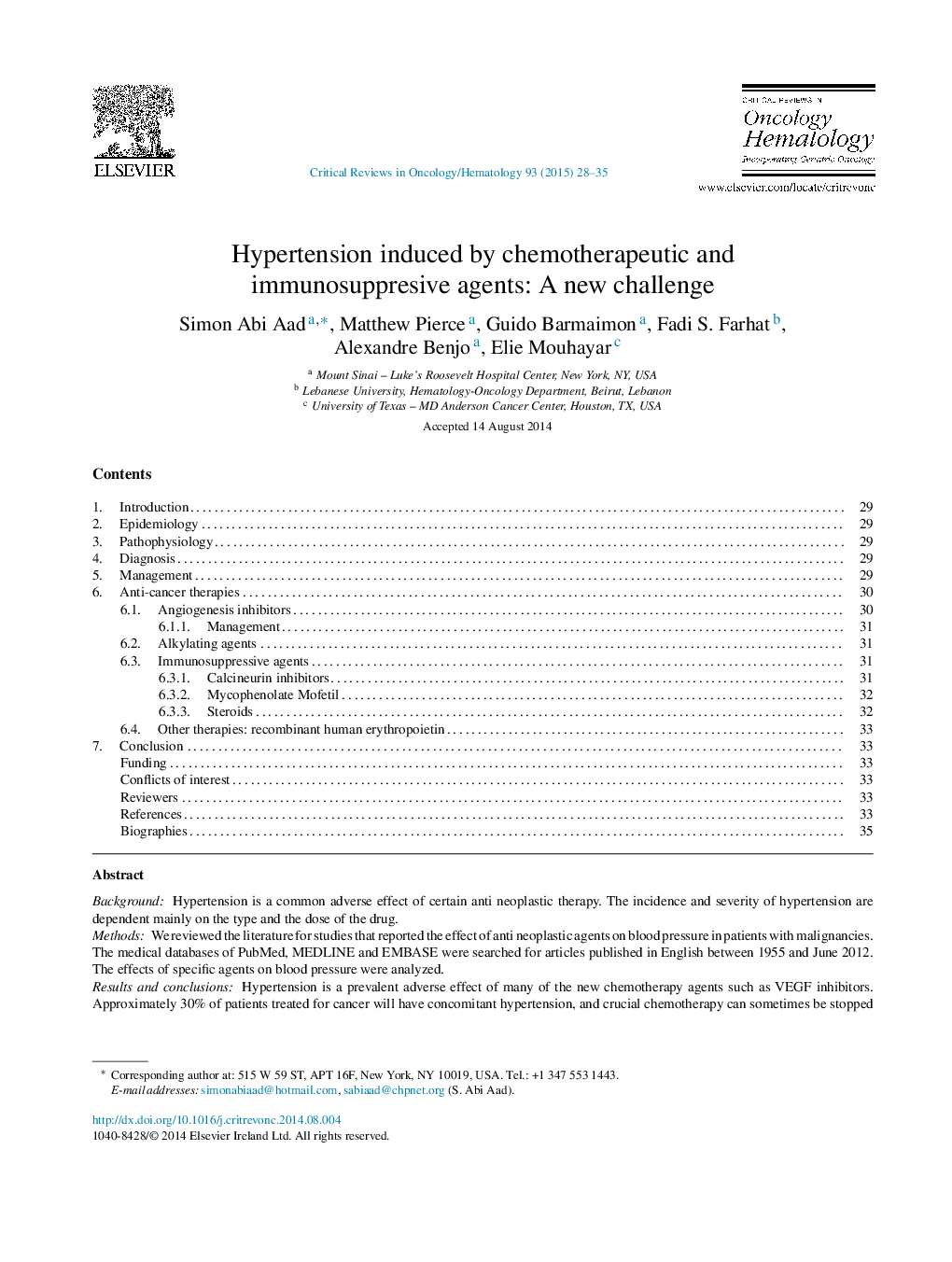| Article ID | Journal | Published Year | Pages | File Type |
|---|---|---|---|---|
| 3328651 | Critical Reviews in Oncology/Hematology | 2015 | 8 Pages |
•Hypertension is a common adverse effect of certain anti neoplastic therapy.•We reviewed the literature for studies that reported the effect of anti neoplastic agents on blood pressure in patients with malignancies.•30% of patients treated for cancer will have concomitant hypertension, and crucial chemotherapy can sometimes be stopped due to new onset or worsening severe hypertension.•Hypertension in this group of patients, if untreated, can alter cancer management and result in dose reductions or termination of treatments as well as life-threatening end organ damage.
BackgroundHypertension is a common adverse effect of certain anti neoplastic therapy. The incidence and severity of hypertension are dependent mainly on the type and the dose of the drug.MethodsWe reviewed the literature for studies that reported the effect of anti neoplastic agents on blood pressure in patients with malignancies. The medical databases of PubMed, MEDLINE and EMBASE were searched for articles published in English between 1955 and June 2012. The effects of specific agents on blood pressure were analyzed.Results and conclusionsHypertension is a prevalent adverse effect of many of the new chemotherapy agents such as VEGF inhibitors. Approximately 30% of patients treated for cancer will have concomitant hypertension, and crucial chemotherapy can sometimes be stopped due to new onset or worsening severe hypertension. The importance of a timely diagnosis and optimal management of HTN in this group of patients is related to the facts that HTN is a well established risk factor for chemotherapy-induced cardiotoxicity and if left untreated, can alter cancer management and result in dose reductions or termination of anti-cancer treatments as well as life-threatening end organ damage.
